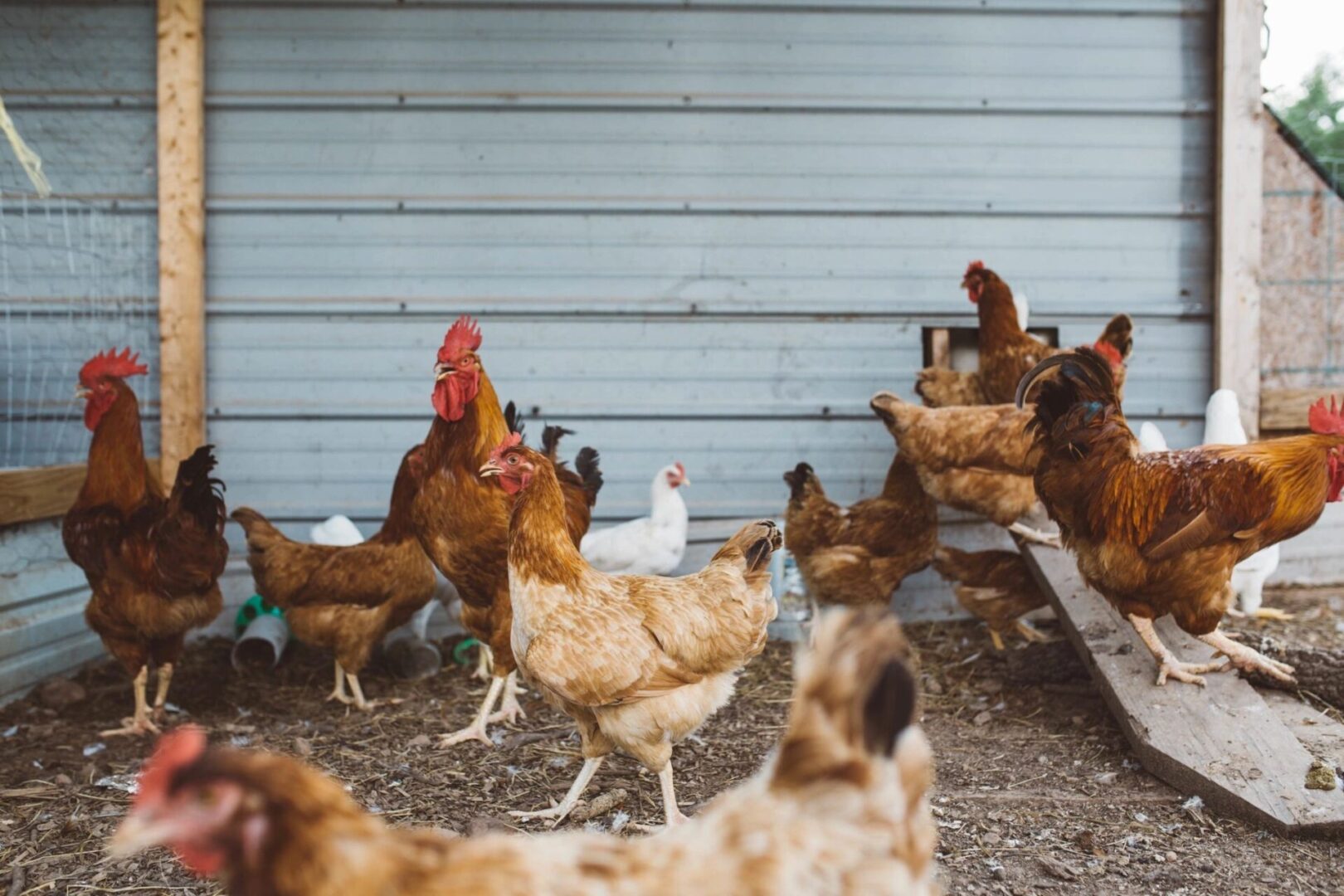Big Dog Chickens
Big Dog Chickens
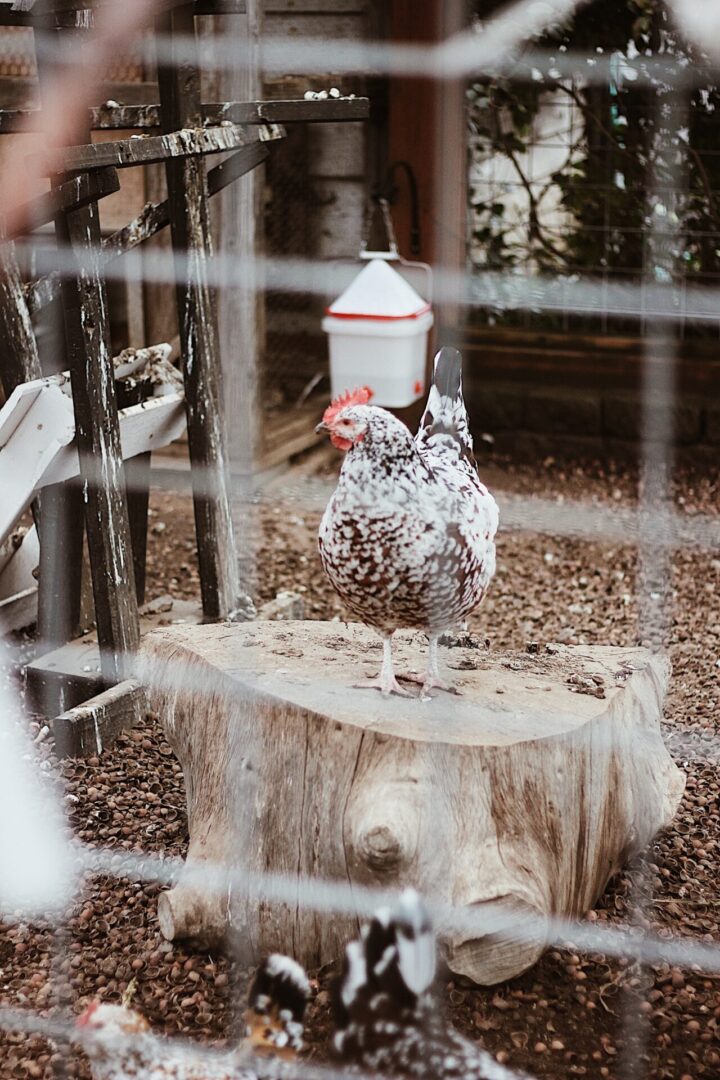
Offering Healthy Chickens of Different Breeds
Big Dog Farm chickens are happy and healthy, which is important because happy chickens lay eggs.We offer chickens of all ages, from young chicks to pullets (adolescent hens) ready to start laying.We raise a variety of heritage breeds. All are intended to make solid backyard citizens. Some, such as the Leghorn, Plymouth Rock, and Rhode Island Red, lay eggs like there’s no tomorrow.Some breeds make better pets than others. As with dogs and cats, different breeds and different individuals have different temperaments, but most can be tamed. Mixing ages can be challenging, however.Our focus here at Big Dog Farm is on the heritage breeds. We are trying to do our part to bring back those old-time chickens! Developed prior to the modern egg production for the masses, the heritage breeds lay lots of eggs and make good backyard birds. They don’t lay as many eggs as some of the hybrids but usually lay for a longer life span.
Offering Healthy Chickens of Different Breeds
Some of these breeds, such as the Jersey Giant, Plymouth Rock, and Rhode Island Red, were developed here in the Northeast and harken back to the early days of America. These breeds, along with Wyandotte, Black Australorp, New Hampshire, and Speckled Sussex, are sturdy, cold-hardy, large, dual-purpose birds that lay large brown eggs. These are great chickens for small back yards.
Others, such as the Leghorn, Blue Andalusian, Ancona, Hamburg, Golden Campine, were developed in Europe in the 1800s. Smaller and more athletic, they are very good at foraging food on their own and, if given open range, require less feed. They can be flighty, which helps them avoid predators. They are productive layers and lay white eggs. These chickens prefer having land to explore but can tolerate confinement. Our best egg producer is the Pearl White Leghorn, which lays giant white eggs almost every day. They tend to assume command of any flock.
Some breeds, such as the Araucana and Maran along with Ameraucana and Easter Egger hybrids, are prized for their colored eggs: Marans lay dark-brown eggs, Araucanas lay light blue eggs. Araucana/Ameraucana Easter Eggers lay eggs that vary in color by individual chicken, making for a festive, colorful carton of eggs that many people enjoy. The Whiting True Blue is a true breed that lays tinted blue eggs, and now there are Whiting True Green hens that lay tinted green eggs. (Don’t worry, all eggs look the same inside regardless of shell color. Think of the color of the shell as being like the color of your car.)
Read MoreCHICKENS FROM BIG DOG FARM
We get chicks off to a healthy start. We take excellent care of them from that tender first week until someone takes them home or they join one of our flocks of layers. Big Dog Farm is a paradise for a chicken.
Our chickens are fed all-natural, organic feed and are provided with lots of fresh water. Often, they are free to range our six-acre meadow and surrounding woods, and other times stay in large runs. When free-ranging around the property, they eat greens (weeds, we hope), insects, worms, nuts, all the things birds love. Chickens are not vegetarians, by the way.
We occasionally give them vegetables from our garden: tomatoes, squash, cucumber, corn. Big Dog Farm chickens are never exposed to herbicides or pesticides, or fertilizers.
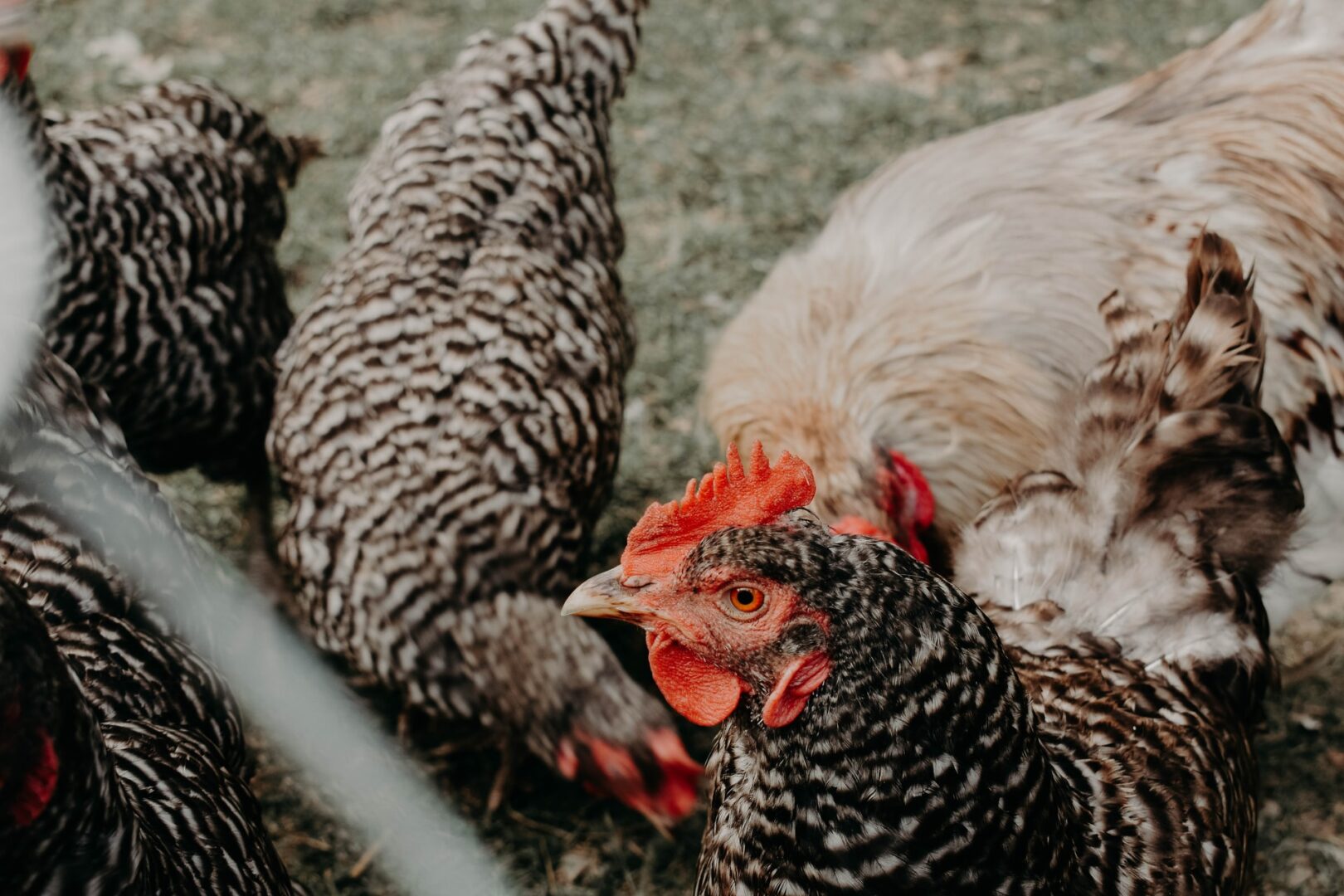
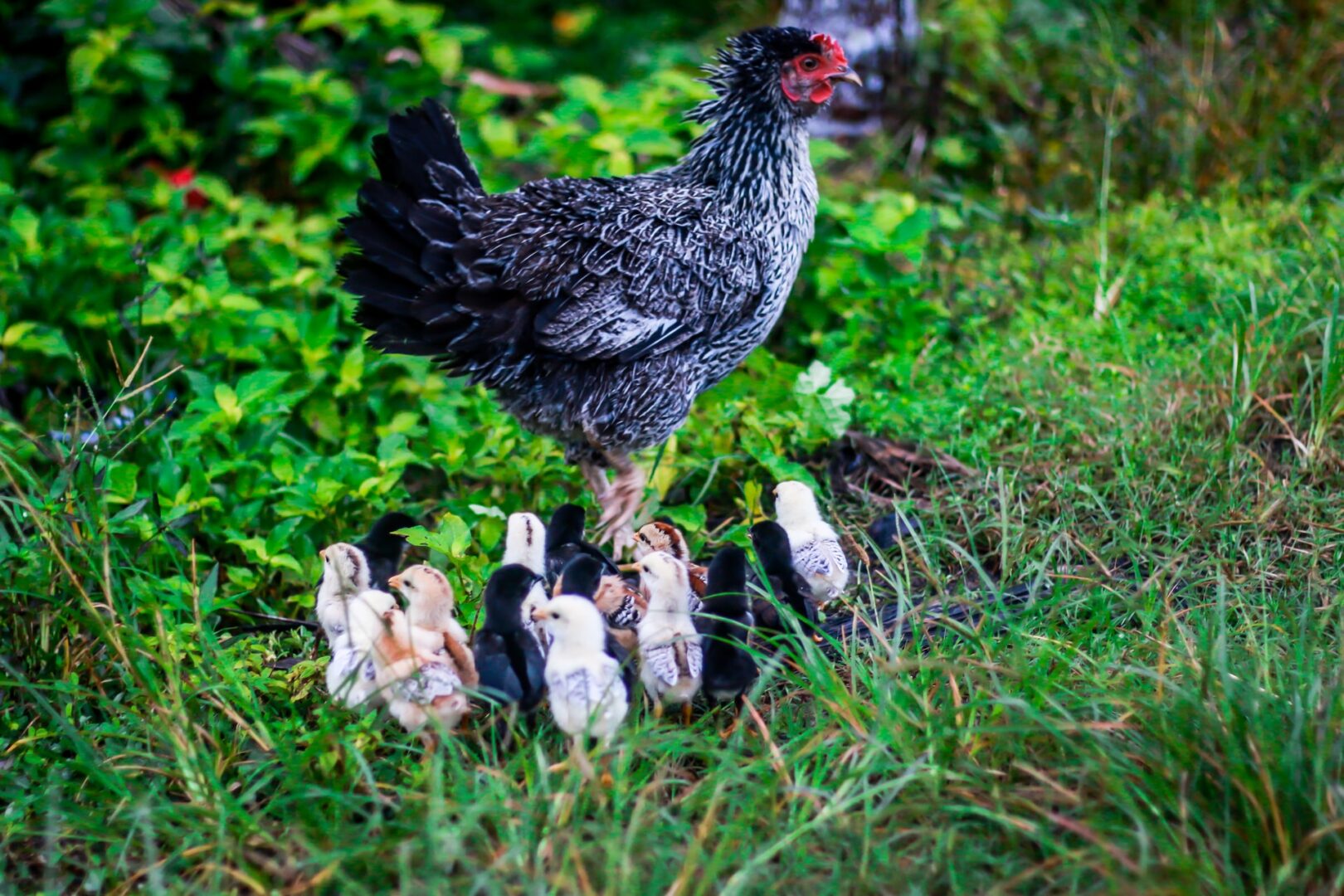
YOUNG CHICKS – 2 TO 5 WEEKS OLD
Getting your chicks in their early stages has advantages and disadvantages. First, you know you have them (often, we sell out quickly). Second, by raising them, you can influence their personalities early on. The disadvantage is that you must care for your chick for six months before she starts laying eggs.
The first four weeks are the busiest for the chicken keeper and the most dangerous for the chicken. Because they haven’t developed adult feathers, they need an external heat source to keep them warm. You’ll need to bring them home and put them in a brooder you turned on the previous day, so it is fully tested and warmed up. You will need to know how to step down the temperature as they grow.
A thermometer is a useful reference, but the behavior of the chicks is the key to knowing whether they are too cold or too hot. Most important: Do not burn your house down with a heat lamp.
CHICKS – 5 TO 15 WEEKS OLD
Chicks during this period are past the early stages and have proven themselves as strong, sturdy hens ready to face the world. Now fully feathered, they are called young pullets by some because they are ready to live in a chicken coop at night and peck about outside during the day, just like adults.
Caring for the chicks is easy at this point, and it’s an amusing period watching the little hens develop personalities and learn about the world around them. They will look to you as a great provider of food and water and will become attached to you if you spend time with them, give them treats and handle them, though we caution against giving them a lot of treats. They can go directly into their new coop.
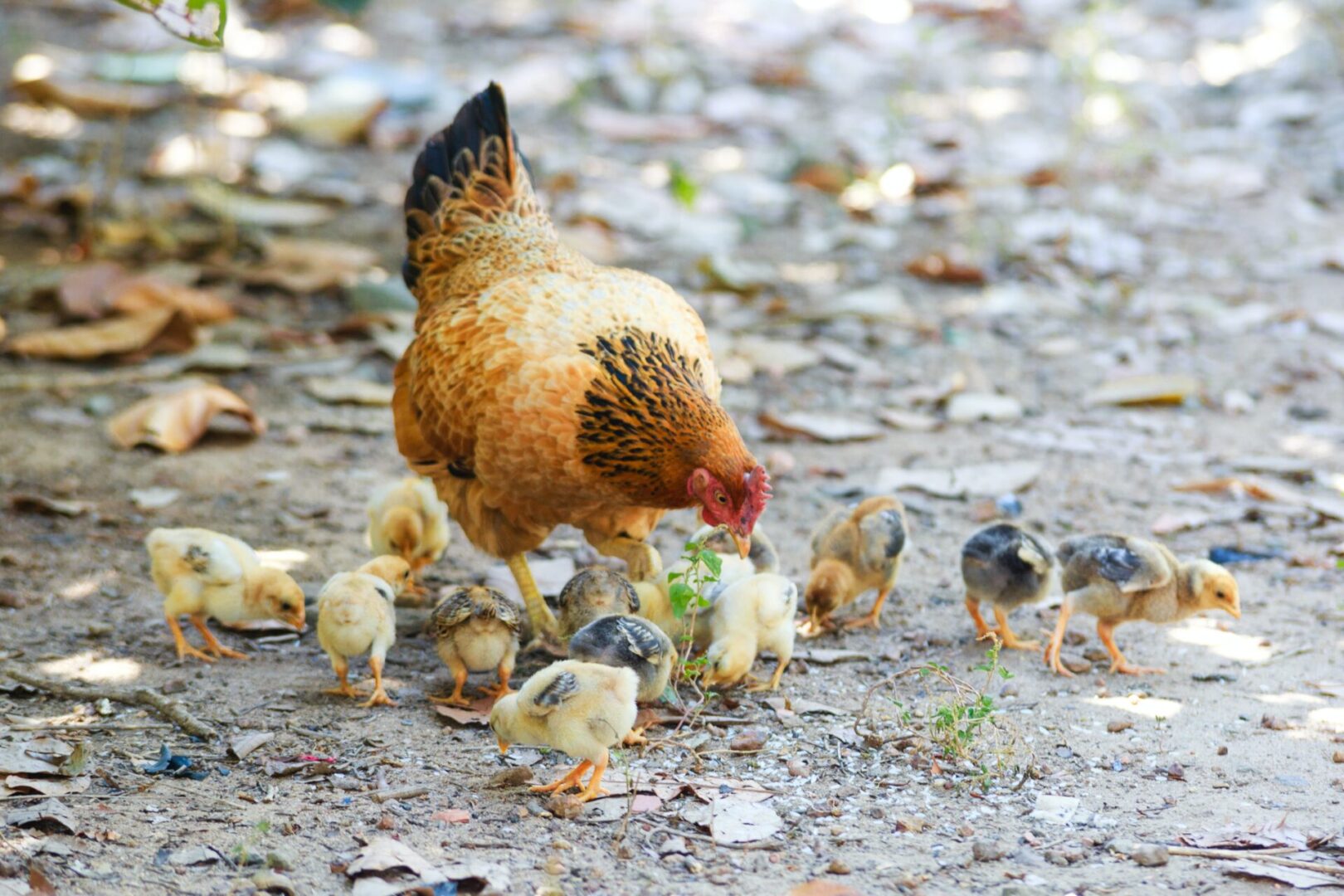
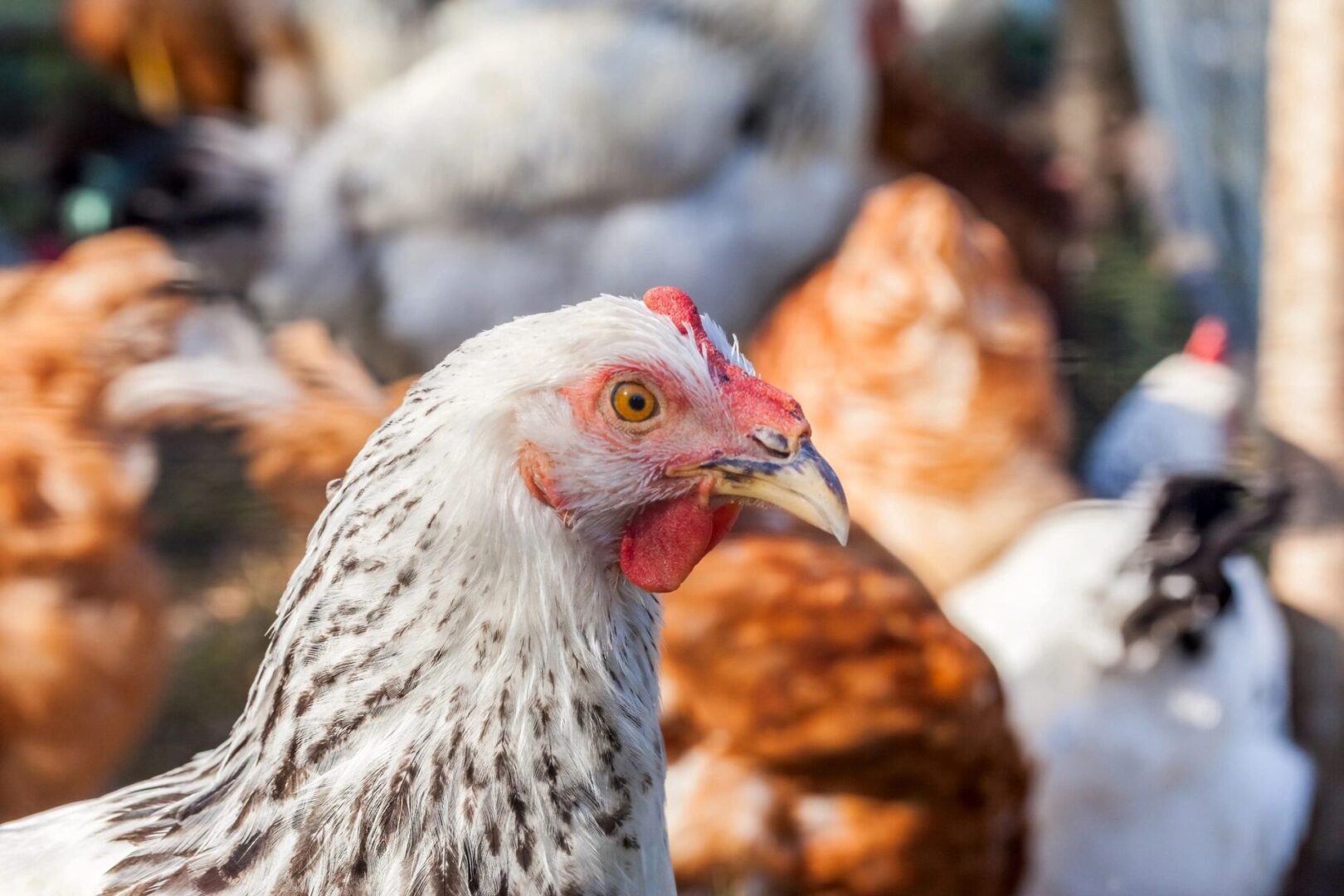
PULLETS – 16 TO 24 WEEKS OLD
These are adolescent hens in their final stages of maturity, having achieved adult size. Often, they can safely join hens in an existing flock. Hens typically begin laying around 24 weeks. Getting your chickens in the weeks leading up to laying reduces the amount of time you’re caring for chickens that aren’t laying eggs.
No external heat source is needed except for the extreme cold. Once they get used to their new home, they should start laying eggs.
LAYING HENS – MORE THAN 24 WEEKS OLD
The term laying hens means they are adult hens that are already proven layers. These chickens thought they had the world figured out until one day they are grabbed and transported to your home.
Please be aware that for biosecurity reasons, a chicken cannot return to Big Dog Farm once it has left.
